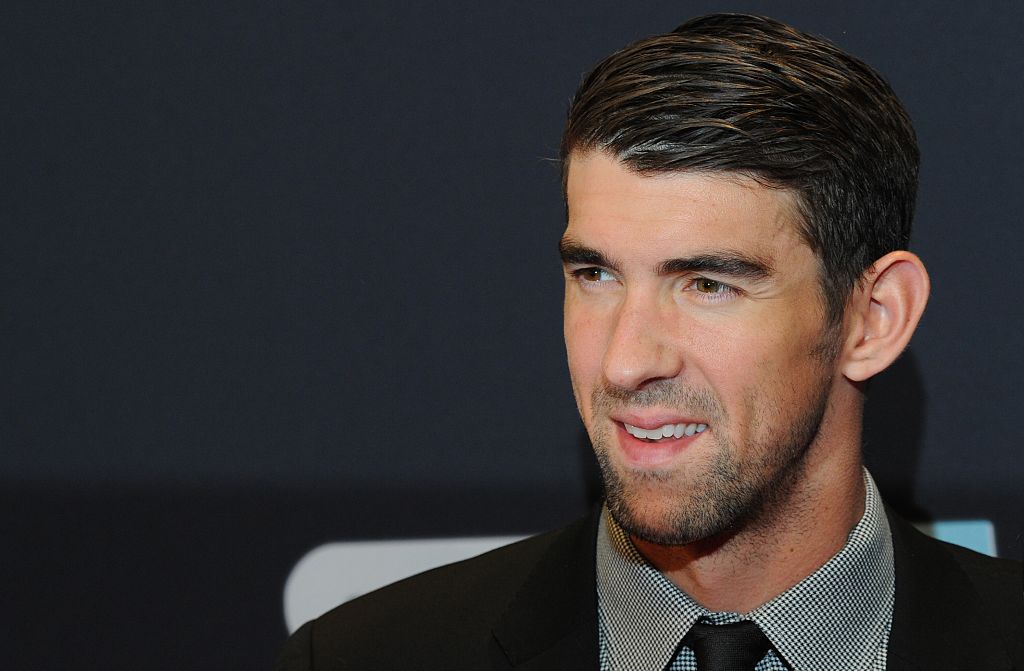Record-breaking Olympic swimmer Michael Phelps opened up about his struggle with depression on Today, ahead of his headlining role at the Talkspace conference “Mental Health & Young Americans” in New York City. The swimmer’s work with the mental health app, the Today interview revealed, stems from a difficult personal journey with depression, and a resulting commitment towards a culture shift around asking for help.
Phelps has discussed his struggle with depression in recent years, and his Michael Phelps Foundation, which aims to keep kids healthy and active, has launched mental health focused initiatives. But he hasn’t always felt comfortable talking about or even acknowledging his depression, he explained in his interview: “Looking back at my career, I was hiding and compartmentalizing a bunch of the stuff that I was going through, just because I was always taught that [as athletes] we weren’t allowed or weren’t supposed to show weakness… You’re supposed to push through anything.”
This pressure to push past mental difficulty — or, box it away out of sight, as Phelps describes — isn’t limited to professional athletes. Prince Harry recently opened up in a speech in Australia about having to push himself to ask for help. Men in particular, according to the National Institute of Mental Health, can have an especially hard time reaching out for aid.
Phelps was able to come to the conclusion “that I can ask for help, and it’s ok to not be ok.” That decision “changed my life,” he says. But he had to get through a very dark, suicidal low point to get to that realization: “I was so down on myself, I didn’t have any self love, and quite honestly I didn’t want to be alive. I saw myself as letting so many people down — myself in particular — and that’s hard to carry,” he told Today.
He wants people to know you can reach out earlier than he did: As he says in a video for Talkspace, “You don’t have to wait for it to get that bad.” His is passionate about actively addressing and destigmatizing the idea of needing help, he explained in his Today interview, and that passion is evident in both the work he does with kids through his foundation and the way he describes his partnership with Talkspace: “We live on our phones. How easy is it to pop on and talk to a therapist, get help? This is something that’s accessible… I know it has the possibility to help so many other people,” Phelps said.
Dealing with mental health issues is an ongoing struggle, Phelps emphasized: Although “I’m now addressing these issues that I have, and I’m openly talking about it, I’m still struggling weekly — from time to time I’ll have bad days where I do go into a depression state.” But therapy has gotten him to the point he’s at now.
At the Talkspace conference, he spoke about his initial hesitation to go to therapy (“In the beginning it was hard to not have my walls up,” he said) and the continuing role it plays in his journey: “For me, therapy helps me sharpen my tools so that I can handle what life throws my way,” he explained. “It’s something I need.”
Thrive Global joined Phelps at the conference, with Editorial Director Marina Khidekel speaking on the panel, “Ready to Leave Home and Face the World,” about the mental health crisis on college campuses and solutions moving forward. Thrive recently launched a new section called Thrive On Campus to cover important issues around campus mental health and amplify student voices. (To apply to become a Thrive Campus Editor-at-Large, click here).
The panel focused on what we’re doing as a society to address youth mental health, and what people can do on an individual level if they are struggling. These are a few of Phelps’ suggestions:
Don’t compartmentalize
Phelps explained that he avoided addressing his mental illness for years by compartmentalizing and then ignoring it. He is now explicitly addressing his issues and advocates a proactive approach for others, too. Ignoring the problem is not the answer, he said.
Ask for the help you need
Perhaps Phelps’ most emphatic suggestion is that you should “be that person that is going out there and getting the help that you need.” Actively seeking help is the only path towards recovery.
Get help through a channel that makes sense for you
Phelps explained that he’s been lucky to be able to sit down with a therapist, but he travels a lot, too, which has made the mobile accessibility of Talkspace a blessing. No single method makes sense for every lifestyle, mental health issue or individual, but the growing number of resources help ensure that everyone has someplace to turn.
Pursuing mental well-being is an ongoing journey, but it can be a fulfilling — and even enjoyable — one
Therapy, by allowing Phelps to keep learning about himself, has actually made the journey “kind of fun,” he says. The self-exploration and analysis that seeking help usually entails, while certainly tough, can take you places within yourself you might not even know exist — and that can be fun. At the Talkspace conference, Phelps revealed how he felt once he got over his initial hesitation about going to therapy. “Once I opened myself up to it and realized it was something I wanted and needed,” he said, “I learned something each session. I was happy. I was smiling.”


